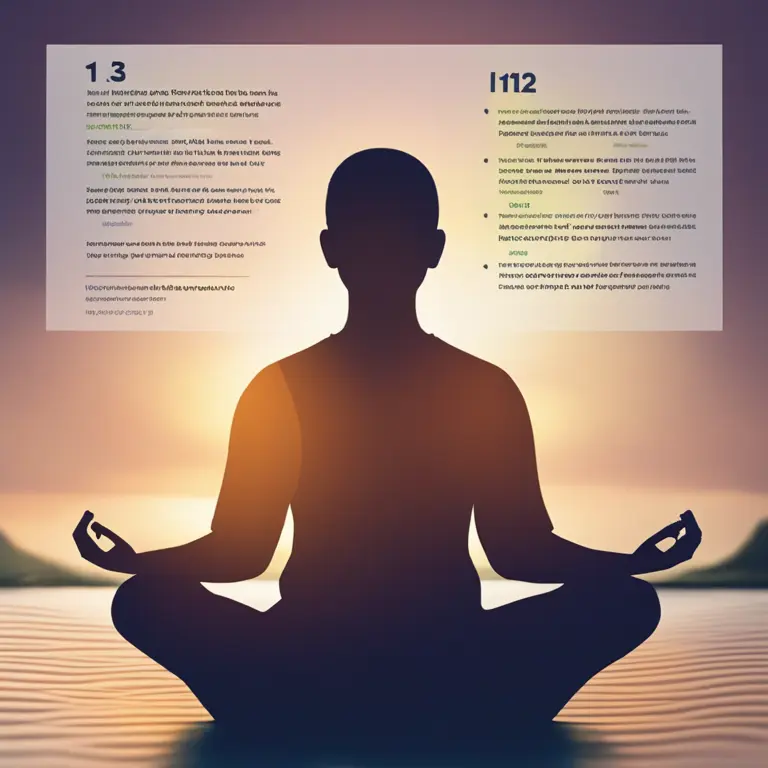
The Healing Power of Meditation for Your Body
Discover how the practice of meditation contributes to physical healing, stress reduction, and overall well-being.
article by Hina Kurosawa
Meditation: A Path to Physical Well-Being
In recent years, the ancient practice of meditation has gained renewed attention as a powerful tool for improving physical health. Its roots stretch back thousands of years, but modern science now affirms its benefits. By promoting relaxation and relieving stress, meditation initiates a cascade of physiological changes that contribute to healing. From lowering blood pressure to enhancing immune response, the transformative effects on the body are profound and multifaceted. As we continue to navigate the challenges of contemporary living, integrating meditation into our daily routines becomes increasingly essential for maintaining physical health.

Meditation and Stress Reduction
The connection between stress and various health problems is well-documented. Chronic stress can lead to a host of issues, including cardiovascular disease, diabetes, and mental health disorders. Meditation serves as an antidote to stress by engaging the body's relaxation response. Through focused breathing and mindfulness, it quiets the mind and quells the production of stress hormones like cortisol and adrenaline. This biological shift not only lessens immediate feelings of anxiety but also mitigates long-term stress effects, paving the way for healing and recovery.

Immune Boost through Mindful Practice
Meditation's ability to boost the immune system is another compelling reason to adopt the practice. Research has shown that regular mediation can increase the production of antibodies and enhance cell-mediated immunity. This fortification of the body’s defense mechanisms can lead to fewer illnesses and a more robust response when infections do occur. Especially pertinent in a world where new health challenges continually emerge, strengthening one's immune system through meditation is a natural and resourceful strategy.

Pain Management and Meditation
For those suffering from chronic pain, meditation offers a welcome respite. It empowers individuals to manage pain with fewer medications, lessening the risk of dependency and side effects. Meditation encourages a mind-body dialogue that can alter pain perception. By fostering a state of deep relaxation and focus, practitioners report a reduction in pain intensity and distress, making it a valuable adjunct to conventional pain management therapies and improving overall quality of life.

Enhancing Sleep and Meditation
Quality sleep is vital for healing and repair, yet countless individuals struggle with sleep disorders. Meditation can serve as a natural sleep aid, helping to quiet the mind and ease the transition into restful slumber. Techniques like mindfulness meditation have been shown to reduce the time it takes to fall asleep and increase the duration of sleep, directly impacting physical health by providing the body ample opportunity to rejuvenate during the night.
Longevity and the Meditative Lifestyle
Adopting a consistent meditation practice may also be linked to longevity. The stress-reducing aspects contribute to a reduction in the wear and tear on the body’s systems, potentially slowing the aging process. This not only includes outward signs of aging but also the degradation of critical telomeres, structures that protect our chromosomes. Telomere length is associated with cellular aging, and meditation has been associated with the preservation of these vital components, hinting at an intriguing relationship between meditation, stress reduction, and aging.
Published: 1/14/2024
Modified: 1/15/2024
More predictions
Come back here soon to learn more about yourself and your future


Calming the Storm: Mindfulness Meditation for Anger
Discover how mindfulness meditation can be a powerful tool for anger management, promoting inner peace and emotional balance.


Discovering Life with Meditation Mantras
Delve into the transformative power of meditation mantras to harmonize your mind, body, and spirit for a tranquil existence.


Mindfulness Meditation Basics for First Graders
Introducing foundational mindfulness meditation practices to instill calm and focus in first-grade students.